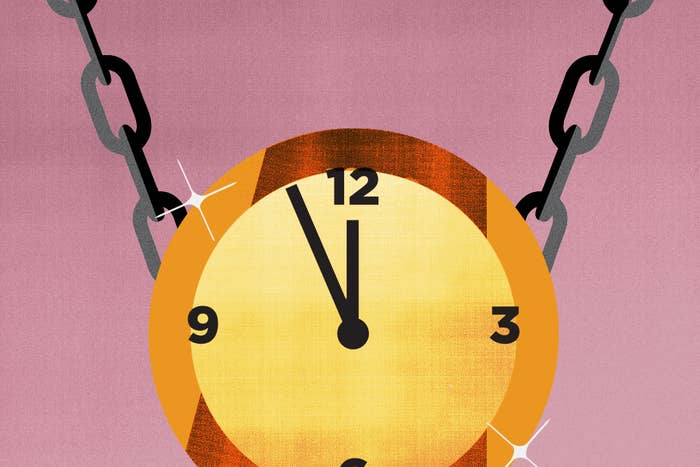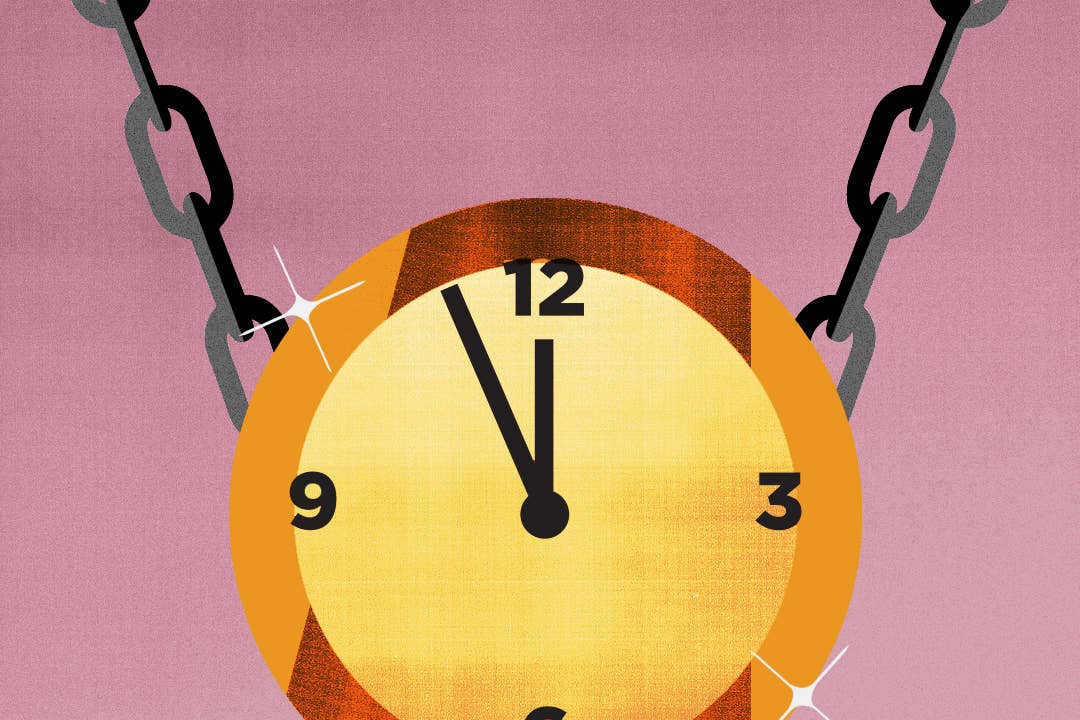
You may not have seen him, but you’ve heard him.
He’s that voice that tells you to “throw your hands in the air!” Or he might ask that “all the ugly people be quiet!” You know, “When I say _____, y’all say _____!” He’s the hype man. He amps up the crowd with shouts and towel-waves, he dances and stomps his way across the stage, he keeps the crowd engaged when things go sour, and stalls when the star runs out of breath. It's a legendary profession with its own class of heroic relationships—Flavor Flav and Public Enemy, Proof and Eminem, or Freaky Tah and The Lost Boyz.
For a figure this ubiquitous to rap, though, the hype man’s job description and exact history are blurry. Save for a half-hearted Wikipedia entry and a page on Urban Dictionary, there are few words dedicated to the hype man.
The hype man is more than a supporting act, bodyguard, or glorified weed carrier. Many have transitioned into stars in their own right—let’s not forget Diddy’s (then Puff Daddy) days as a hype man for The Notorious B.I.G., or groups like the Wu-Tang Clan, where every rapper seems to double as a hype man.
While it’s hard to trace the exact origins of the role, the hype man's possibility for celebrity began with Public Enemy’s Flavor Flav, whose exuberant presence on wax and onstage became an immediately recognizable part of early hip-hop.
With his signature top hat, oversized clock necklaces, and interjections of “Yeahhhh boyyyy!” Flav provided an energetic foil to Chuck D’s rhymes and popularized the hype man role for the first time.
“Chuck and Flav perfected the interaction of the serious preacher-rapper with a comical hype man,” Mickey Hess writes in Icons of Hip Hop. "Chuck D provided scathing political and cultural critiques of society, while his partner Flavor Flav served as the hype man... to woo listeners who were not drawn to Chuck's political perspective."
But it wasn't all business—the hype man's story wouldn't be complete with mention of Proof, the former D12 member who worked with Eminem until his death in 2006. Like many hype men, Proof wasn’t just Eminem’s career partner—he was also the rapper’s best friend. When Eminem spoke at Proof's funeral, he opened up about the importance his right-hand man’s support: “Without Proof, there would be no Eminem, no Slim Shady, no D12.”
Busta Rhymes might say the same thing about his faithful hype man Spliff Star, who claims to have urged the MC out of the street life and into the studio. Speaking to us over the phone, Spliff remembers picking up Busta and the other soon-to-be members of the Flipmode Squad off the street in his car: “You’re going to do the music stuff,” Spliff told them.
Those early ties still pay off during shows—Spliff claims he and Busta have never once rehearsed their stage routine. “It’s just that I know him, and he knows me,” he said.
Spliff met Busta in their hometown of Brooklyn when he was just 11 years old—they both had a crush on the same neighborhood girl. Now 41 and a seasoned vet of the music industry, Spliff’s chief responsibility is keeping the audience’s energy levels high, even when the MC’s isn’t.
"It’s all about treating the show like it’s yours,” he said. “Just like if you lend me your car, you want me to treat the car like it’s mine, right? You would want me to wash it, keep it clean, and have gas in it, so when you come back, your car looks good.”
But Spliff also warned that his advice comes with an asterisk: you don’t want to outshine the MC, or worse, get on the crowd’s nerves.
Spliff and Busta performed together for the first time around 1993, when Busta’s cousin and former hype man, Rampage, started dropping his own solo music and couldn’t make one of Busta’s shows. Spliff took his place—and hasn’t left it since.
The first gig wasn't all smooth. “I jumped on the stage trying to do crowd diving," Spliff remembered. "People looked at me like, 'Who the hell are you?' They moved out the way and I hit the floor, bam!” Spliff said, laughing. “Now, when I jump in the crowd, they catch me.”
As you may have noticed, we haven’t mentioned any hype women. None of the artists interviewed for this story could name a hype woman themselves. If there are hype women out there, they’re severely underrepresented by the industry—scratch that, they’re barely represented at all.
We turned to Leaf, the 21-year-old Brooklynite making feminism-charged rap, in the hopes that she might prove us wrong. Unfortunately, Leaf said the answer is “pretty simple.” if hip hop itself is dominated by men, why would we expect the world of hype men to be any different?
“Since hip hop is a predominantly male environment, there’s no outlet for female hype men,” she said. “In 2016, genres have become slimmer and less experimental, in my opinion... due to a lack of platform, there’s no space for more women to prosper [as hype men].”
But along with everything else about the music industry, the 21st century digital obsession is transforming the role of the hype man—and pushing it further to the sidelines.
Bishop G, the rapper and former hype man for Lupe Fiasco, thinks that the rise of social media means more of a focus on individual artists, pushing any sidekicks to... the side. Bishop G credits this shift chiefly to Kanye West.
“When Kanye started doing that one-man show shit, where he’s the only one onstage, I feel like the hype man started falling to the background,” Bishop said over the phone.
Bishop belongs to a new generation of team members who don’t see themselves as hype men at all. “I see myself as more of a back-up performer,” he explains. Though he acknowledges that he fits the role, Bishop says most hype men do too many different jobs—from rapping on tracks with the MC and putting out solo material to business and managerial responsibilities—to have just one title.
Still, neither Bishop nor Spliff could name any downsides to their role. On the contrary, in fact: Spliff said that his frequent travels have earned him seven passports filled with stamps, and some of Bishop’s best memories come from moments onstage and on tour with Lupe. “We did a lot of shit, I’ll never forget it,” he laughs.
The shift towards a solo hip-hop show is part of what Stereogum's Chris DeVille calls the “hypeman-as-frontman,” that is, rappers whose very claim to fame is that they incessantly hype themselves.
DJ Khaled is the consummate example of this modern hype man. Sure, Khaled’s tracks are catchy, but his shameless self-promotion and boundless optimism have come to define Khaled as an entertainer. Why else is he the king of Snapchat, with his perfectly corny catchphrases all over our news feeds and Instagram captions? There’s never been a better time to build and hype up your persona, and now there are plenty of outlets available to do it.
“It’s a real message,” Khaled told Complex earlier this summer. “Snapchat has put an antenna [on me] and the whole world has got to see me... I’ve been blessed with people that like it. Again, I’m just being me.”
Given this 21st-century individualism, maybe the turn toward the hypeman-as-frontman is inevitable. Khaled’s not the only self-promoter out there—Snapchat boasts over 150 million daily users, after all. As Spliff puts it, “There’s a hype man in all of us.”
you’re trying to be the life of the party, keep smiles on everybody’s facE. You want to be the reason why that person smiles or why that person wants to party their ass off. - Spliff Star
“It’s like when you’re at the house and you’re partying with your girls and stuff, you’re trying to be the life of the party, keep smiles on everybody’s face,” he continued. “You want to be the reason why that person smiles or why that person wants to party their ass off.”
If it’s true that we’re all destined to be hype men and women, maybe it’s time to turn to some advice from the experts. Spliff Star’s words of wisdom? “Don’t outshine, accommodate.” And Bishop G asks you to remember that “it actually starts before you go onstage... the same shit that I do onstage, if I hear that [song] in the car, I’m doing the same shit.”
But one thing is for sure: being a hype man takes a certain type of razor-sharp, doubtless confidence that doesn’t come naturally to everyone. In order to raise attention to someone else, it seems, you’ve got to think of yourself as a star first.
Khaled, for one, claims his hype man skills are “guaranteed.” Spliff says he’s proud to be labeled a hype man, “as long as they put the words, ‘the best’ in front of it.” And when asked to name his favorite hype man of all time, Bishop G’s answer seems preordained.
“You mean, not including myself?”


